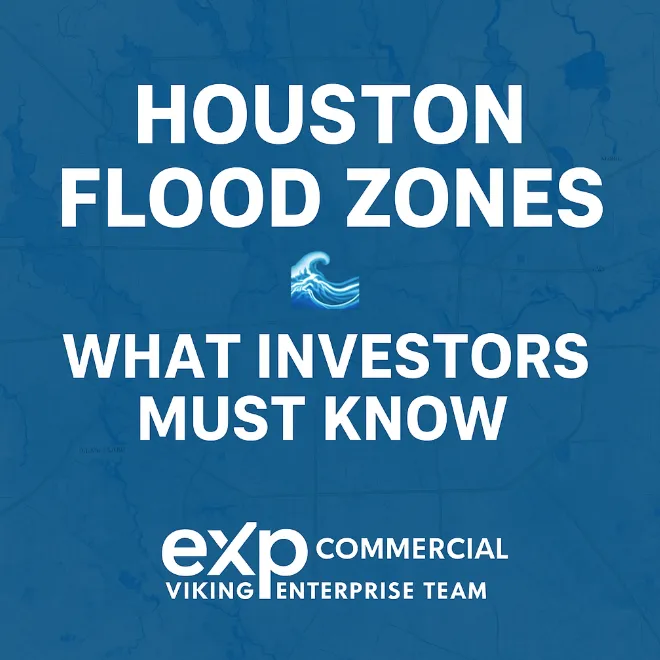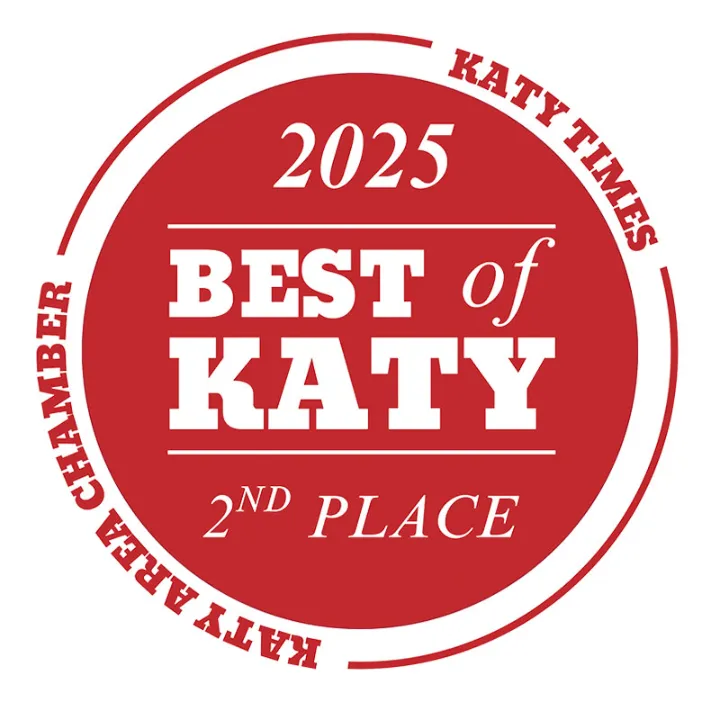Your Trusted Houston Commercial Real Estate Brokerage
Viking Enterprise LLC is part of eXp Commercial, an agent-led, cloud-based commercial real estate brokerage with agents across the globe.
Email: [email protected]
Call: (281) 222-0433
Your Trusted Katy / Fulshear & Houston Commercial Real Estate Brokerage
Viking Enterprise LLC is part of eXp Commercial, an agent-led, cloud-based commercial real estate brokerage with agents across the globe.
Looking to invest, buy, sell or lease? We can help.
Looking to invest, buy, sell or lease? We can help.
FEATURED PROPERTIES




OUR FEATURED TENANTS & CLIENTS
eXp Commercial - Viking Enterprise Team's real estate network provides unparalleled commercial real estate services to Tenants and Landlords around the Katy- Houston area. Our knowledge, experience, and reputation sets us apart from many firms.
A commercial property owner might have various plans that would necessitate the services of a commercial real estate broker. Some of the common scenarios include:
1. Selling the Property: If the owner decides it’s time to sell the property, a commercial real estate broker can help determine the market value, market the property effectively, and negotiate with potential buyers to get the best possible price.
2. Leasing Space: For property owners looking to lease out part or all of their commercial space, a broker can help find suitable tenants, negotiate lease terms, and ensure the lease agreements meet all legal requirements and serve the owner’s best interests.
3. Acquiring More Properties: Owners looking to expand their portfolio would benefit from a broker's knowledge of the market, access to listings, and negotiation skills to secure additional properties at favorable terms.
4. Property Management: While not all brokers offer this service, some commercial real estate brokers or their affiliates offer property management services. This can be particularly appealing for owners who prefer a hands-off approach or are managing properties from a distance.
5. Market Analysis: Owners considering future developments, renovations, or rebranding of their property might engage a broker for a comprehensive market analysis. This helps in understanding current market trends, the demand for different types of spaces, and potential returns on investment for various strategies.
6. Refinancing: In situations where a property owner is looking to refinance their property, a commercial real estate broker can provide valuable insights into the property’s current market value, assist in gathering necessary documentation, and even help in finding the best financing options.
7. Partnership or Investment Opportunities: Owners interested in exploring partnerships, joint ventures, or seeking investors for expansion or development projects might use a broker to find and vet potential partners or investors.
8. Consulting on Zoning and Use Changes: When contemplating a change in the use of the property or dealing with zoning issues, a broker with experience in local regulations and the specific property type can provide guidance and strategic planning assistance.
9. Exit Strategy Planning: For owners looking to plan an exit strategy from their investment, whether it’s through a strategic sale or a gradual winding down of operations, brokers can provide market insights, timing advice, and valuation services to optimize the exit process.
In any of these scenarios, the expertise and services provided by a commercial real estate broker can save the property owner time and money, while also providing access to a wider network of potential buyers, tenants, and industry professionals. Give us a call today!
Reviews

🌊 Houston Flood Zones Explained: What Every CRE Investor Must Know 🏢
🌊 Houston Flood Zones Explained: What Every CRE Investor Must Know 🏢
🏞️ Investing Smart in Houston: How to Navigate Flood Zones Like a Pro 🌧️
Houston Flood Zones: What Investors Must Know
Houston is one of America’s most opportunity-rich real estate markets — but it’s also one of the most flood-prone. For commercial real estate investors, understanding flood zones is not optional — it’s essential. Knowing how to assess flood risk, interpret FEMA maps, and account for insurance or mitigation costs can mean the difference between a strong investment and a financial disaster.
Understanding Flood Zones
Flood zones are areas designated by the Federal Emergency Management Agency (FEMA) that indicate varying levels of flood risk. In Houston, these range from low-risk “Zone X” properties to high-risk “Zone AE” or “Zone VE” areas. Investors can find this data through the FEMA Flood Map Service Center or Houston’s Harris County Flood Control District portal.
Why Flood Zones Matter for CRE Investors
Properties located in high-risk zones often face:
·Higher insurance premiums, which can affect cash flow and cap rates.
·Financing challenges, as lenders may require specific insurance coverage.
·Reduced tenant demand if perceived risk impacts desirability.
·Repair or mitigation costs, such as drainage improvements or elevation requirements.
However, not all flood zone properties are deal-breakers. Many prime commercial assets — particularly in Houston’s Energy Corridor, Meyerland, and near Buffalo Bayou — have been upgraded with flood mitigation systems, making them viable investments when properly underwritten.
How to Assess Flood Risk Before Buying
1.Review FEMA maps and compare them with historical flood events (e.g., Harvey, Imelda).
2.Check elevation certificates — they provide actual building height versus base flood elevation.
3.Analyze property-level improvements like detention ponds, levees, and drainage systems.
4.Consult local engineers or floodplain managers for risk mitigation strategies.
5.Secure the right insurance — commercial flood insurance through NFIP or private carriers can protect cash flow and lender compliance.
Pro Tip for Investors
Savvy investors use flood data to negotiate better terms. A seller’s unwillingness to address flood risk can justify a lower acquisition price — or open doors to off-market opportunities others avoid.
Bottom Line
Houston’s flood zones shouldn’t scare you off — they should make you smarter. When analyzed correctly, even flood-prone areas can yield strong returns, especially when paired with modern infrastructure, tenant insurance requirements, and risk-adjusted pricing.
💡 Work with a knowledgeable broker and lender who understand Houston’s floodplain dynamics — like the eXp Commercial Viking Enterprise Team — to ensure every deal is structured for resilience and ROI.
https://www.houstonrealestatebrokerage.com/
https://www.houstonrealestatebrokerage.com/houston-cre-navigator
https://www.commercialexchange.com/agent/653bf5593e3a3e1dcec275a6
http://expressoffers.com/[email protected]
https://app.bullpenre.com/profile/1742476177701x437444415125976000
https://author.billrapponline.com/
https://www.amazon.com/dp/B0F32Z5BH2
https://veed.cello.so/FOmzTty6oi9
https://creplaybookseries.billrapponline.com
https://creplaybook.billrapponline.com/
© 2023-2024 Bill Rapp, Broker Associate, eXp Commercial Viking Enterprise Team
eXp Commercial - Viking Enterprise team real estate network provides unparalleled commercial real estate services to Tenants and Landlords around the greater Katy & Houston MSA area. Our knowledge, experience, and reputation sets us apart from many firms.
A commercial property owner might have various plans that would necessitate the services of a commercial real estate broker. Some of the common scenarios include:
1. Selling the Property: If the owner decides it’s time to sell the property, a commercial real estate broker can help determine the market value, market the property effectively, and negotiate with potential buyers to get the best possible price.
2. Leasing Space: For property owners looking to lease out part or all of their commercial space, a broker can help find suitable tenants, negotiate lease terms, and ensure the lease agreements meet all legal requirements and serve the owner’s best interests.
3. Acquiring More Properties: Owners looking to expand their portfolio would benefit from a broker's knowledge of the market, access to listings, and negotiation skills to secure additional properties at favorable terms.
4. Property Management: While not all brokers offer this service, some commercial real estate brokers or their affiliates offer property management services. This can be particularly appealing for owners who prefer a hands-off approach or are managing properties from a distance.
5. Market Analysis: Owners considering future developments, renovations, or rebranding of their property might engage a broker for a comprehensive market analysis. This helps in understanding current market trends, the demand for different types of spaces, and potential returns on investment for various strategies.
6. Refinancing: In situations where a property owner is looking to refinance their property, a commercial real estate broker can provide valuable insights into the property’s current market value, assist in gathering necessary documentation, and even help in finding the best financing options.
7. Partnership or Investment Opportunities: Owners interested in exploring partnerships, joint ventures, or seeking investors for expansion or development projects might use a broker to find and vet potential partners or investors.
8. Consulting on Zoning and Use Changes: When contemplating a change in the use of the property or dealing with zoning issues, a broker with experience in local regulations and the specific property type can provide guidance and strategic planning assistance.
9. Exit Strategy Planning: For owners looking to plan an exit strategy from their investment, whether it’s through a strategic sale or a gradual winding down of operations, brokers can provide market insights, timing advice, and valuation services to optimize the exit process.
In any of these scenarios, the expertise and services provided by a commercial real estate broker can save the property owner time and money, while also providing access to a wider network of potential buyers, tenants, and industry professionals. Give us a call today!

Find the perfect location for your business.
Let us help your business succeed.

🌊 Houston Flood Zones Explained: What Every CRE Investor Must Know 🏢
🌊 Houston Flood Zones Explained: What Every CRE Investor Must Know 🏢
🏞️ Investing Smart in Houston: How to Navigate Flood Zones Like a Pro 🌧️
Houston Flood Zones: What Investors Must Know
Houston is one of America’s most opportunity-rich real estate markets — but it’s also one of the most flood-prone. For commercial real estate investors, understanding flood zones is not optional — it’s essential. Knowing how to assess flood risk, interpret FEMA maps, and account for insurance or mitigation costs can mean the difference between a strong investment and a financial disaster.
Understanding Flood Zones
Flood zones are areas designated by the Federal Emergency Management Agency (FEMA) that indicate varying levels of flood risk. In Houston, these range from low-risk “Zone X” properties to high-risk “Zone AE” or “Zone VE” areas. Investors can find this data through the FEMA Flood Map Service Center or Houston’s Harris County Flood Control District portal.
Why Flood Zones Matter for CRE Investors
Properties located in high-risk zones often face:
·Higher insurance premiums, which can affect cash flow and cap rates.
·Financing challenges, as lenders may require specific insurance coverage.
·Reduced tenant demand if perceived risk impacts desirability.
·Repair or mitigation costs, such as drainage improvements or elevation requirements.
However, not all flood zone properties are deal-breakers. Many prime commercial assets — particularly in Houston’s Energy Corridor, Meyerland, and near Buffalo Bayou — have been upgraded with flood mitigation systems, making them viable investments when properly underwritten.
How to Assess Flood Risk Before Buying
1.Review FEMA maps and compare them with historical flood events (e.g., Harvey, Imelda).
2.Check elevation certificates — they provide actual building height versus base flood elevation.
3.Analyze property-level improvements like detention ponds, levees, and drainage systems.
4.Consult local engineers or floodplain managers for risk mitigation strategies.
5.Secure the right insurance — commercial flood insurance through NFIP or private carriers can protect cash flow and lender compliance.
Pro Tip for Investors
Savvy investors use flood data to negotiate better terms. A seller’s unwillingness to address flood risk can justify a lower acquisition price — or open doors to off-market opportunities others avoid.
Bottom Line
Houston’s flood zones shouldn’t scare you off — they should make you smarter. When analyzed correctly, even flood-prone areas can yield strong returns, especially when paired with modern infrastructure, tenant insurance requirements, and risk-adjusted pricing.
💡 Work with a knowledgeable broker and lender who understand Houston’s floodplain dynamics — like the eXp Commercial Viking Enterprise Team — to ensure every deal is structured for resilience and ROI.
https://www.houstonrealestatebrokerage.com/
https://www.houstonrealestatebrokerage.com/houston-cre-navigator
https://www.commercialexchange.com/agent/653bf5593e3a3e1dcec275a6
http://expressoffers.com/[email protected]
https://app.bullpenre.com/profile/1742476177701x437444415125976000
https://author.billrapponline.com/
https://www.amazon.com/dp/B0F32Z5BH2
https://veed.cello.so/FOmzTty6oi9
https://creplaybookseries.billrapponline.com
https://creplaybook.billrapponline.com/
© 2023-2024 Bill Rapp, Broker Associate, eXp Commercial Viking Enterprise Team
Find the perfect location for your business.
Let us help your business succeed.
9600 Great Hills Trail, Suite 150w Austin, TX 78759 |
855.450.0324 xx255
Texas Real Estate Commission Consumer Protection Notice Texas Real Estate Commission
Information About Brokerage Services eXp Commercial LLC #9010212
Viking Enterprise LLC #9009614

Sign up to receive the latest news on property investment and commercial real estate listings.
Contact Us
901 S Mopac Expwy, Bldg 2, Suite 350 Austin, TX 78746 | 512.474.5557Texas Real Estate Commission
Consumer Protection Notice Texas Real Estate Commission Information About Brokerage Services Reliance Retail, LLC #603091
Texas RS, LLC #9003193 | RESOLUT RE Is Licensed In Louisiana #0995694083


Facebook
Instagram
X
LinkedIn
Youtube
TikTok